
- •Южный федеральный университет о. И. Сафроненко
- •Southern Federal University
- •Предисловие
- •Contents
- •Focus on Language
- •Keep learning? Keep earning!
- •What are effective study habits?
- •Focus on Language
- •First degree courses in the uk
- •Focus on Language
- •Starting your haunt of treasures
- •A university is just a group of buildings gathered around a library.” Shelby Foote
- •Unexpected Discoveries
- •Metric system microscope thermometer telescope
- •Invention /discovery
- •Breakthroughs of the 20th century
- •Verb Suffixes
- •Inventor
- •Double-edged sword
- •Learning Objectives
- •In this module you will learn how:
- •Discuss
- •Environmental Hazards of the Computer Revolution
- •Comprehension check
- •Work in teams of 3. Make as many words as possible using the prefixes re-, dis-, over-, sub-, en-, up- . Compare as a class.
- •The advent of “green” computer design
- •Learning Objectives
- •Science for the Twenty-First Century
- •As old as writing
- •Discuss
- •Learning Objectives
- •Part-time Jobs vs. Holiday Jobs
- •The Experience that is shaping the rest of my life
- •Complete the table to illustrate the basic rules for backshift when transforming direct speech into reported speech.
- •What Can I Do with a Science Degree?
- •Scripts Module 1 Unit 1
- •Module 1 Unit 2
- •Module 2 Unit 1
- •Module 2 Unit 2
- •Module 3 Unit 1
- •Module 3 Unit 2
- •Module 4 Unit 1 Abacus
- •Module 4 Unit 2
- •Module 5 Unit 1
- •Module 5 Unit 2
- •Module 6 unit 1
- •Module 6 Unit 2
- •Module 7 Unit 1
- •Module 7 Unit 2
- •Interviewer
- •Interviewer
- •Interviewer
- •Keys Module 1 Unit 1
- •Module 1 Unit 2
- •Module 1 Unit 3
- •Module 2 Unit 1
- •Module 2 Unit 2
- •Comprehension check 1
- •Comprehension check 2
- •Module 2 Unit 3
- •Module 3 Unit 1
- •In the Realm of Science 2
- •Module 3 Unit 2 Reading
- •Reading Focus on language 2
- •Module 3 Unit 3
- •Module 4 Unit 1
- •Module 4Unit 2
- •Module 4 Unit 3
- •Module 5 Unit 1
- •Module 5 Unit 2
- •Unit 3 Review
- •Module 6 Unit 1
- •In the Realm of Science 1
- •Module 6 Unit 2
- •In the Realm of Science 2
- •Module 6 Unit 3
- •Module 7 Unit 1
- •Module 7 Unit 2
- •Module 7 Unit 3
Discuss
Litter is ugly, dangerous and expensive. Moreover it multiplies and travels. Why is it so?
Who do you think is responsible for solving the problem of litter in cities?
Have you ever participated in a cleaning up activity or any other civic improvement programs in your city? Do you think such programs can help to improve your community? How would you feel walking along a street after you had helped to clean it of litter?
Speaking |
Interview ten of your fellow students about the most serious environmental problems in your hometown.
Functional language: Presenting another point of view Some of the people think that … Each of the interviewees believes that … Most of the people agree/disagree that … Hardly anybody/Nobody feels that … According to the majority of people … Two of ten interviewees say … 50% of people point out that… Very few people/All the people claim that … etc. |
Writing |
Complete the bar chart below marking each bar with the results of your interviews. Summarize your findings in a paragraph.
|
|
Reading |
Look through the texts on various green initiatives that are introduced worldwide and take notes on a particular green initiative and its benefits described in each text.
A
B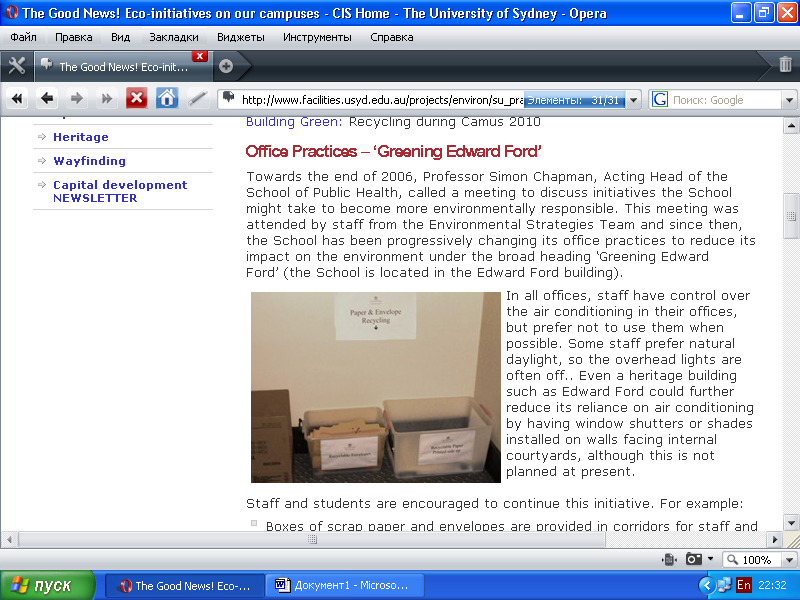
C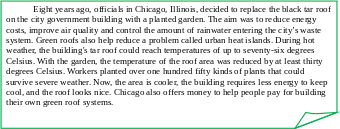
D
E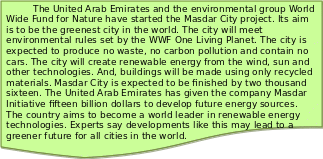
Get real |
Search the Internet, specialized magazines or talk to the experts who work in your university to get comprehensive and reliable information about one of the environmental problems in your country or the region you live in. Summarize the information you have collected and report back to the class. Follow the guidelines:
State the problem briefly but clearly
Describe the problem in detail (the causes and effects)
Give examples of green initiatives aimed at solving the problem.
Speaking |
Work in groups of 3-4 and discuss what actions as individuals you can take to help to solve the environmental problems listed below. Brainstorm solutions to some national or local problems. Use the phrases from the Functional language box. Share your solutions with the rest of the class.
What can be done… a) to control the cutting down of forests?
b) to clean up the beaches?
c) to reduce air pollution?
d) to save rare animals and plants?
e) to slow down global warming?
f) to stop the spread of droughts?
g) to reduce floods?
-
Functional language: Making suggestions
Well, one thing to do is…
Another thing to be done is …
Another way to help is…
If we don’t do …, we will (won’t) …
It would be great to …
We should …
We’d better( do sth.)…
Writing |
A big petroleum company has announced that it wishes to build a plant for refining petroleum products in an area of countryside near your city. The plans have divided the community into three groups:
Greens:
You regard the chosen site as an area of outstanding natural beauty which should not be harmed in any way. You oppose any construction on the site.
Enthusiasts:
You welcome the economic benefits that the new plant will bring and aim to provide technological and financial support which will help the refinery to reduce its impact on the environment.
Regulators:
You would like to strengthen the rules on pollution and increase the fines on companies that release pollutants.
Which group do you associate yourself with?
Write a letter to the local authorities of your own city giving your opinion on this problem and saying which suggestions you agree or disagree with. Follow the model.
Y and the date |
|
|
6345 Willow Avenue Baltimore, Mariland 21220
4 November 2008 |
N
|
|
|
Mr. Charles H.C. Wright City Hall Special Projects Officer 19 Harbor Place Baltimore, Mariland 21220 |
Salutation If you know the name of the person, put it: Dear M. Wright Dear M. Wright Dear Mr. Wright If not, put: Dear Sir(s), Madam
The body of the letter Paragraph 1. The introduction
Paragraph 2. The message
Paragraph 3. The conclusion
f you start: Dear Sir, Finish: Yours faithfully If you start: Dear Mr Wright Finish: Yours sincerely |
|
|
Dear Mr Wright,
I am writing to express my concern about ...________________ ______________________________________________________________________________________________________ I strongly disagree with ..._(I see the importance of …)_______ ______________________________________________________________________________________________________ In my opinion ...._____________________________________ ______________________________________________________________________________________________________ ___________________________________________________ I hope you ...________________________________________ ___________________________________________________ ___________________________________________________ Thank you for your attention to this matter.________________
Yours sincerely, Janette Grayston |
Work in pairs. Exchange your letters and read them. Is the language, used by your fellow student, appropriate for a formal letter? Are his/her ideas and viewpoints clear? Make any suggestions for improvements.
Project work |
All of you are at the meeting which is held to discuss the most urgent environmental problems in your city. Each student plays one of the roles described below. Read the situation and the role descriptions and decide who will play each role. Divide into 5 groups (group A – environmentalists, B – bank representatives, C – city residents, D – city council members, E – project managers). Prepare for ten minutes before you begin the meeting. Make use of the functional language in the Functional language box.
The situation
The World Bank has decided to fund the “Eco-friendly city” programme. As the representatives of different local organizations and the community you have to discuss the most urgent environmental problems in your city, the ways to solve them and to work out projects that will allow to cope with the most urgent problems in your neighborhood. As a result the World Bank will choose the most attractive project.
Functional language: Debating In my opinion … If you want my opinion …
Agreeing I agree (with …) I think … is right. That’s exactly what I feel.
Disagreeing I’m afraid I don’t agree (with …) I don’t think you are right. Yes, but listen … That’s nonsense!
Interrupting to make a point Forgive me for interrupting but … Can I say something? Can I make a point?
Summarizing Can we agree then that … Shall we say then that … Well, it seems that the best solution is to … |
You live in this city and work in the local branch of the World Bank. The Board of trustees appointed you to be the person in charge for the successful realization of the eco-programme in your city. You introduce the programme of the World Bank, briefly describe the situation and conduct the meeting.
Roles: environmentalists
You are a member of the local Green Peace organization. You are concerned with the high level of industrial waste, soil and water contamination in your city. Present your project and suggest the ways for its realization.
Roles: city residents
You are worried about the shrinking of green spaces and increasing of air pollution in your city. Present your project and suggest ways and terms of its realization.
Roles: the City council member
The city council is concerned with the poor quality treatment of sewage waters. Present your project and suggest ways and terms of its realization.
Roles: The World Bank representative
You are a member of the World Bank Board of Trustees who is responsible for choosing the most attractive project and an appropriate use of the money donated.
In the Realm of Science |
Practice reading these compounds and chemical reactions.
H2O |
[‘eitʃ ‘tu: ou] |
|
HNO3 |
[‘etʃ ‘en ‘ou ‘Θri] |
|
NOx |
[‘en ‘ou ‘eks] |
|
SO2 |
[‘es ‘ou ‘tu:] |
|
C + O→CO2 |
[si:plus ou tu: give si: out u:] |
|
|
|
|
Now take turns to read and note down the following compounds and chemical reactions.
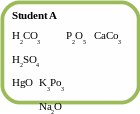

2Mg+O2 → 2Mg0
CaO+H2O → Ca(OH)2
2CO+O2 → 2CO2
NaCl + AgNO3 → NaNO3 + AgCl
Learn the pronunciation and the meaning of the chemical elements.
Ag |
[α:ʹʤentәm] |
argentum |
N |
[ʹnaitriʤәn] |
nitrogen |
Al |
[ˏæljuʹminjәm] |
aluminium |
Na |
[ʹsoudjәm] |
sodium |
Br |
[ʹbroumi:n] |
bromine |
Ni |
[ʹnikl] |
nickel |
C |
[ʹkα:bәn] |
carbon |
O |
[ʹɔksiʤәn] |
oxygen |
Cl |
[ʹklɔ:ri:n] |
chlorine |
P |
[ʹfɔsfәrәs] |
phosphorous |
Co |
[kәʹbɔ:lt] |
cobalt |
Pb |
[led] |
lead |
Cs |
[ʹsi:zjәm] |
caesium |
Pu |
[plu:ʹtounjәm] |
plutonium |
Cu |
[ʹkɔpә] |
copper |
Ra |
[ʹreidjәm] |
radium |
H |
[ʹhaidriʤәn] |
hydrogen |
S |
[ʹsʌlfә] |
sulfur |
Hg |
[haiʹdrα:ʤirәm] [ʹmә:kjuri] |
hydrargyrum mercury |
Si |
[ʹsilikәn] |
silicon |
Ti |
[tiʹteinjәm] |
titanium |
|||
I |
[ʹaiәdi:n] |
iodine |
U |
[juәʹreinjәn] |
uranium |
Li |
[ʹliϴiәm] |
lithium |
Xe |
[ʹzenɔn] |
xenon |
Mo |
[mɔʹlibdinәm] |
molybdenum |
Zn |
[ziŋk] |
zinc |
Unit 1. Progress Monitoring In this unit you have worked on the following vocabulary related to the topic “Environment”
Tick (V) the points you are confident about and cross (X) the ones you need to revise. |
Unit 2 The Downside of the Computer Era
Lead In |
What kind of environmental problems has the computer era already brought about? Make a list of problems and discuss them with the rest of the class.
L
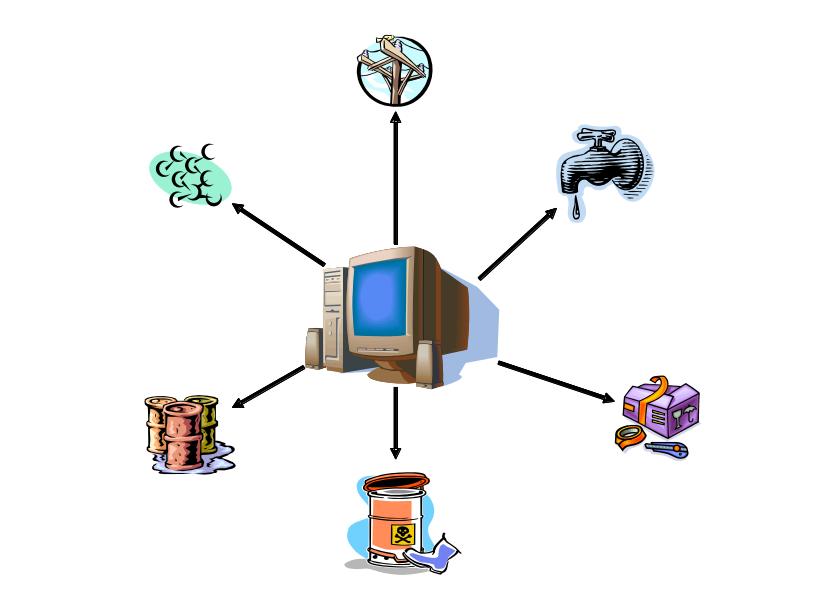 ook
at the picture and make suggestions on what the manufacture of one
PC requires. Comment on the environmental hazards of this process.
ook
at the picture and make suggestions on what the manufacture of one
PC requires. Comment on the environmental hazards of this process.
Reading |
Read the text. Check if your predictions of the possible environmental hazards correspond to the information from the text.

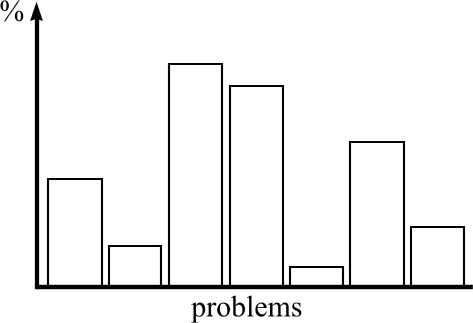
 our
address
our
address ame
and address of the company/person you are writing to
ame
and address of the company/person you are writing to